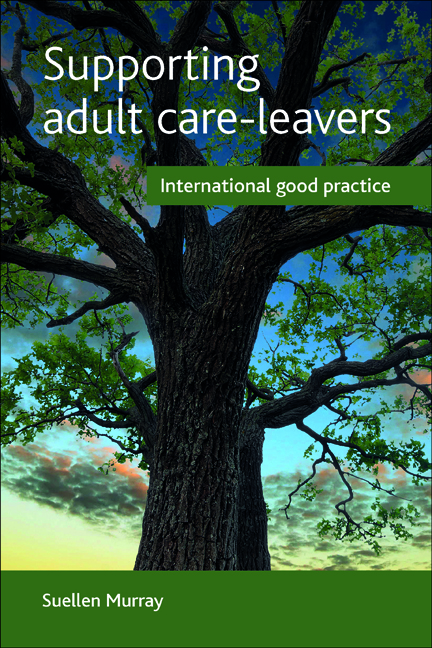Book contents
- Frontmatter
- Author biography
- Acknowledgements
- Contents
- List of abbreviations
- List of tables, figures and boxes
- One Introduction
- Two Care and its aftermath
- Three Public inquiries
- Four Apologies, memorials and other acknowledgements
- Five Reparation and redress
- Six Specialist support
- Seven Access to records and family reunification
- Eight Advocacy and consumer participation
- Nine Good practice in supporting adult care-leavers
- Notes and references
- Select bibliography
- Index
Four - Apologies, memorials and other acknowledgements
Published online by Cambridge University Press: 01 September 2022
- Frontmatter
- Author biography
- Acknowledgements
- Contents
- List of abbreviations
- List of tables, figures and boxes
- One Introduction
- Two Care and its aftermath
- Three Public inquiries
- Four Apologies, memorials and other acknowledgements
- Five Reparation and redress
- Six Specialist support
- Seven Access to records and family reunification
- Eight Advocacy and consumer participation
- Nine Good practice in supporting adult care-leavers
- Notes and references
- Select bibliography
- Index
Summary
The apology from Mr Rudd [Australian Prime Minister] and Turnbull [Leader of the Opposition] – some of them were jumping around: ‘Oh I’m relieved’. ‘What do you mean? You’re still the same. You can't eat an apology.’ It's nice to receive it but you’ll still be the same tomorrow and the day after. (Ray, adult care-leaver, 2011)
There are mixed feelings about apologies and other symbolic acknowledgements of harms caused by a childhood in care. Ray, a man now aged in his 80s who grew up in care from a baby for all of his childhood, came to Parliament House to hear the apology from the Prime Minister to the Forgotten Australians in 2009. Even though he knew others found great consolation in their words, he left feeling somewhat ambivalent. Some adult care-leavers have found these symbolic acknowledgements important ways to assist in reconciling the trauma of their childhood. Others, like Ray, have found them less helpful and have sought more practical forms of recognition, as discussed in the following chapters. In Australia, while there has been a range of programmes put in place to support adult care-leavers, the federal government apologies have not included financial redress, unlike in Ireland and Canada.
Typically, in response to the various inquiries, formal apologies have been issued by some governments, non-government agencies and religious organisations. Other forms of official remembrance have also been initiated, such as memorials and museum exhibitions. To acknowledge the importance of the children's homes to former residents, plaques have been laid at these sites to commemorate and honour the lives of the children who lived there. All these initiatives attempt to change the way in which the past is understood and remembered. They contribute to shifts in understandings of care and present-day relationships between adult care-leavers and the wider community.
In this chapter, we first consider the forms of acknowledgement, their purpose and importance, and key characteristics. We then review what has occurred in each of the countries under investigation. Specific examples of the various forms of acknowledgements are analysed to see to what extent they include features that have been identified as critical to their performance as acknowledgements. Particular attention is paid to Australia, Canada and Ireland, where national apologies and remembrance initiatives have been put in place.
- Type
- Chapter
- Information
- Supporting Adult Care-LeaversInternational Good Practice, pp. 65 - 86Publisher: Bristol University PressPrint publication year: 2015

